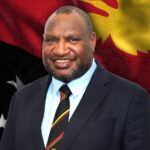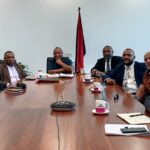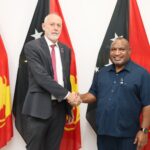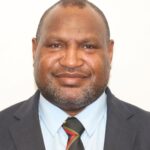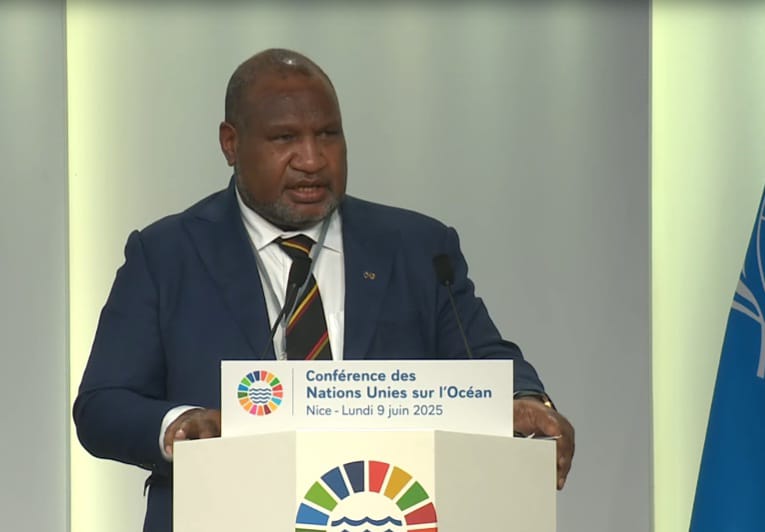Prime Minister Hon. James Marape, in delivering Papua New Guinea’s Country Statement today, affirmed that the ocean is not only a source of biodiversity but the nation’s lifeblood. The Prime Minister made this statement at the 3rd United Nations Ocean Conference in Nice, France.
Prime Minister Marape highlighted that, as an archipelagic and maritime nation at the heart of the Coral Triangle, Papua New Guinea spans 2.8 million square kilometres of ocean territory.
“We host over seven percent of global biodiversity, a third of the world’s tuna, the fourth- largest coral reef system, and some of the most pristine mangrove ecosystems in the Pacific.
“For us, the ocean is not only a source of our biodiversity but our lifeblood — central to our identity, economy, and food security,” he said.
The Prime Minister said the Constitution of Papua New Guinea mandates the conservation and sustainable use of the country’s natural resources for future generations.
“Guided by this, I am pleased to share key progress since the last Ocean Conference. Our 2023–2027 Fourth Medium Term Development Plan places the environment–oceans–climate nexus at the centre of our sustainable development strategy,” he said.
In 2024, Prime Minister Marape noted, Papua New Guinea enacted the Protected Areas Act, targeting 30 percent protection of land and marine areas by 2030.
“We have established two major marine protected areas — Lovongai and Murat — covering over 17,000 square kilometres, with community-based management.
“Recognising the delicate balance between economic benefits and biodiversity protection, PNG’s waters were designated a Particularly Sensitive Sea Area by the International Maritime Organization (IMO) in 2016.
“In September 2024, PNG secured United Nations recognition of its marine zone boundaries, reaffirming our sovereignty in the face of rising sea levels,” he said.
Prime Minister Marape added that Papua New Guinea continues to implement its National Oceans Policy (2020–2030) and has established a National Oceans Office to coordinate marine governance in line with UNCLOS.


